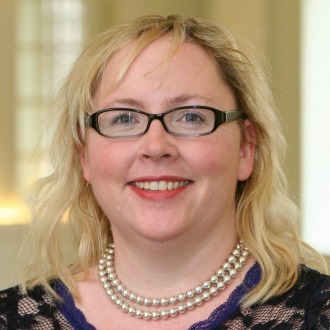GPC Wales secures two-year contract deal with reduction in QOF

GPs in Wales will see 101 points transferred to the global sum, the retention of seniority payments and a review of vaccination fees under a two-year deal secured by the GPC, the chair of the Welsh GPC has announced.
The contract, details of which are to be announced in full today, will reduce bureaucracy for GPs, Dr Charlotte Jones announced at the Welsh LMCs conference in Cardiff on Saturday.
She added that the deal also included further developments on practice clusters to allow transfer of resources from secondary to primary care and a ‘sustainability programme’ to help out practices facing closure.
Dr Jones said the GPC believed the two-year agreement would deliver ‘a degree of stability for practices’.
Dr Jones told Pulse: ‘We’ve agreed a two-year deal with the Welsh Government and the details of the contractual agreement will be announced in full on Monday.
‘Roughly 101 points have been taken out of QOF. We wanted to mirror what has happened in England, with further reductions in QOF in terms of the number of indicators and also the removal of some of the bureaucratic elements, such as sending three patient invitations every year.’
Dr Jones added that work worth 160 QOF points will be dedicated to developing the practice clusters set up under last year’s contract.
She said: ‘The other change within QOF is we’ve gone to year 2 of the cluster development programme which is worth 160 QOF points. So what we’re doing is to join up the development of clusters, the groupings of practices, to enable them to work towards managing delegated budgets, to redesign and commission services for patients, managing the community staff so they can better use their skills and expertise rather than it all being rather fragmented.’
Dr Jones explained that the sustainability programme is to be delivered at health board level, with a panel of senior health board executives and an LMC representative responsible for assessing struggling practices to come up with a rescue plan.
She said: ‘The assessment panel will make a decision quickly – we’ve said within six weeks – and it will identify what resources are needed to support that practice. That could be management, administrative, clinical personnel or it could be financial – or a mix of all those – but it will be individualised to that practice.’
Dr Jones said there was no designated ‘emergency fund’ but that health boards could use enhanced services money and directly administered funds where financial support was needed.
She stressed the support was not for practices facing losses following MPIG removal but help to prevent practices from ‘keeling over’.
‘This is not a replacement for MPIG removal, this is about practices on the brink and maybe having to close branches or remove services.’
Pulse October survey
Take our July 2025 survey to potentially win £1.000 worth of tokens










